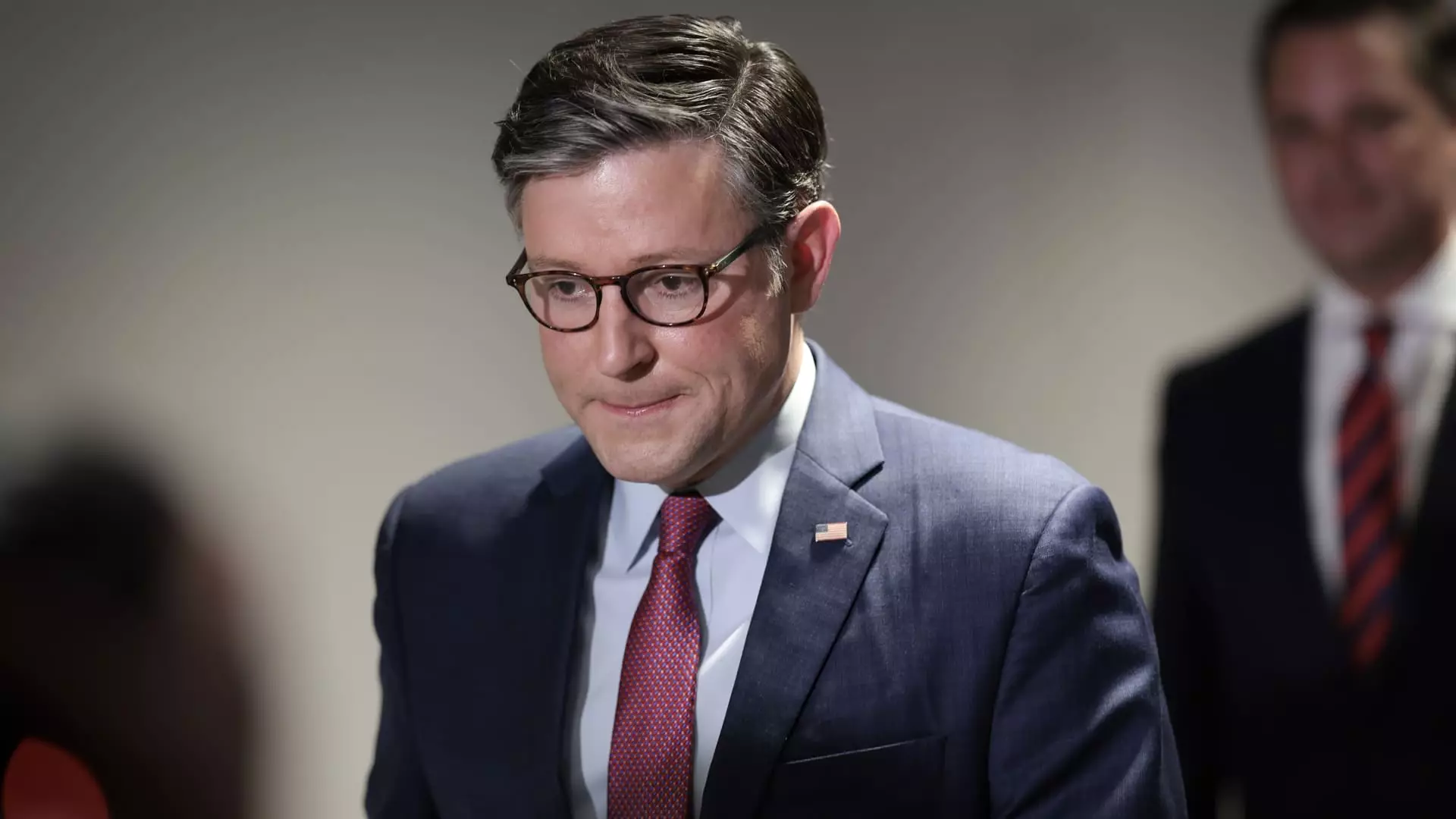In a political landscape fraught with tensions and competing agendas, Republican House Speaker Mike Johnson has recently rolled out a revised government funding proposal that prompts both intrigue and concern. This pivot reflects not only the urgent need to secure government operations but also the intricate dynamics between party expectations, voter sentiment, and the looming threat of a partial government shutdown.
Johnson’s latest funding proposal, aimed at extending government funding through December 20, contrasts sharply with earlier iterations heavily influenced by former President Donald Trump. The new plan notably omits the SAVE Act, a contentious measure strongly championed by Trump that mandated proof of citizenship for voter registration. This concession signifies a conscious effort by Johnson to court bipartisan support, demonstrating a willingness to work collaboratively with Democrats in an environment where a government shutdown could have disastrous implications so close to the November elections.
In a recent letter to House members, Johnson characterized the proposal as “very narrow” and “bare-bones,” emphasizing its intent to minimize disruptions while maintaining essential government functionality. By focusing on necessary extensions rather than sweeping reforms or funding agreements, he appears to be strategically navigating through a political quagmire, hoping to avert backlash from both moderate Republicans eager for stability and Democrats advocating for a more balanced approach.
This proposal arrives as Congress faces a tight deadline to resolve funding issues. In Johnson’s words, failing to address the funding before the impending deadline signifies a “political malpractice.” Such assertions underscore the growing recognition within certain GOP circles that ideological purity must sometimes yield to practical governance, especially with a critical election on the horizon. The ramifications of a shutdown are profound; not only would it disrupt essential services, but it could also polarize voter sentiments against the party in power.
Trump’s vocal disapproval of Johnson’s approach, as he rallied support for the six-month funding alternative tethered to the SAVE Act, illustrates the deep factionalism within the GOP. The former president’s exhortations to “not hesitate to shut the government down” if election security isn’t guaranteed serve as a reminder of how entrenched positions can complicate legislative consensus. This tension presents a challenge for Johnson as he juggles the demands of party elders while safeguarding his leadership role.
Clarity of purpose can sometimes be lost amid complicated negotiations, but Johnson seems to have found an increasingly narrow path toward stability. By adopting a short-term funding strategy devoid of contentious legislative riders, he aligns with Democrats and addresses the practicalities of governance in a divided Congress. President Biden and Democratic Senate Majority Leader Chuck Schumer welcomed this shift, suggesting it fosters an environment conducive to bipartisan cooperation. Schumer’s remarks about the positive implications of Johnson’s changes hint at a potential thawing in the often-fractious relationship between the two parties.
However, the optimism surrounding this new proposal must be tempered with caution. Johnson’s concessions, while necessary, might expose him to scrutiny from hardline GOP members who view compromise as a betrayal of core principles. The fallout from previous initiatives led by former House Speaker Kevin McCarthy, leading to his ousting after striking a deal with Democrats, looms large over Johnson’s leadership and heightens the stakes of his current efforts.
In navigating this complex terrain, Johnson walks a tightrope suspended between party loyalty and the imperative of governing effectively. The need for collaboration could not be more pressing, as both Republicans and Democrats grapple with a charged political atmosphere and the pressing needs of their constituents. The success of Johnson’s tenure as Speaker may ultimately hinge on his ability to continue forging bipartisan alliances, particularly as the nation moves closer to a potentially contentious electoral cycle.
Johnson’s recent government funding proposal is emblematic of a broader struggle within American politics: the tension between ideological adherence and pragmatic governance. As funding deadlines approach, the choices made in the coming days will reverberate far beyond just numbers and allocations. They will shape the narrative surrounding party leadership, governance effectiveness, and ultimately, voter confidence. In an era where political divides run deep, the importance of negotiation and compromise cannot be overstated.

Leave a Reply